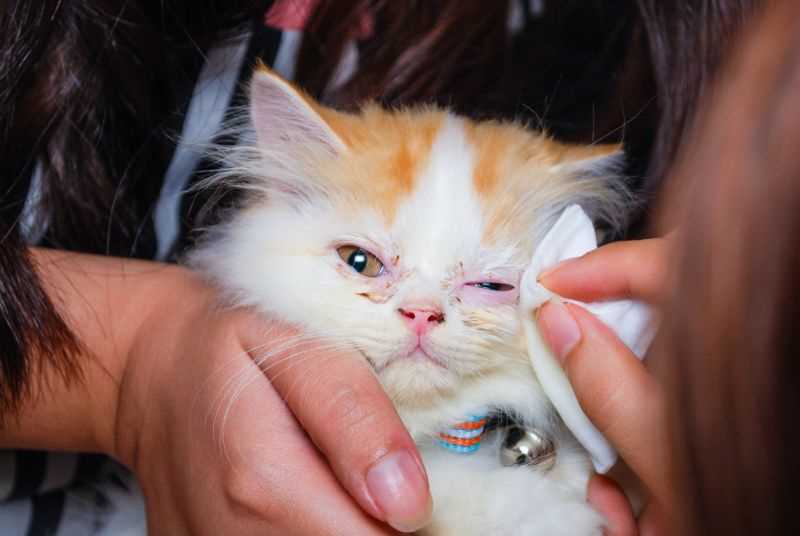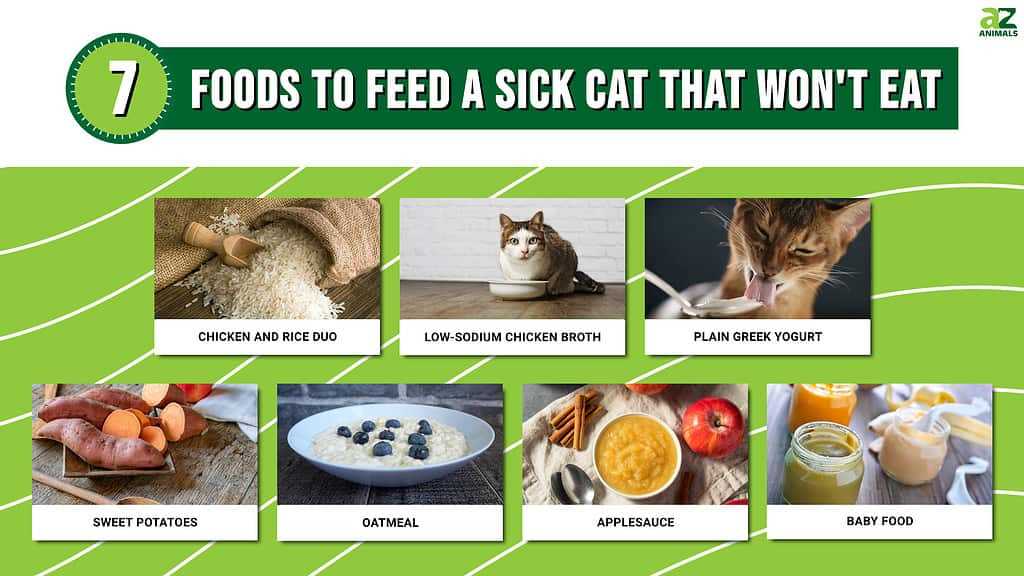

Warm, easily digestible broths can be a soothing option. I recommend offering homemade chicken or beef broth without any seasoning. Ensure it’s cooled down before serving. This not only hydrates but also provides essential nutrients.
High-quality wet food specifically designed for recovery can be beneficial. Look for options that contain easily digestible proteins and are rich in moisture. This helps in maintaining hydration levels while enticing the appetite.
Herbal remedies like catnip or valerian can have calming effects. While not a substitute for veterinary care, these can help ease anxiety during recovery. Just a small sprinkle can make a difference in mood.
Keep fresh water available at all times. Hydration plays a key role in the healing process. If your companion is reluctant to drink, consider using a pet water fountain to encourage intake.
Gentle encouragement to eat is important. If your furry friend is hesitant, try offering small, frequent meals throughout the day instead of one large serving. This approach can help stimulate interest in food.
Always consult with a veterinarian before introducing new foods or supplements. Professional advice ensures that the right choices are made based on specific needs. Prioritizing health is essential.
What to Offer Felines During Illness
Hydration is key. Providing fresh water is a must, especially if a furry friend isn’t eating as usual. Consider offering low-sodium chicken broth to encourage fluid intake and stimulate appetite.
Nutritional support can come from easily digestible options. Foods like boiled chicken or rice can be gentle on the stomach. It’s wise to avoid dairy, as many felines are lactose intolerant.
For those with specific ailments, check with a vet about supplements that may aid recovery. Omega-3 fatty acids can support immune function, while probiotics help with digestive health.
| Condition | Recommended Item |
|---|---|
| Loss of Appetite | Low-sodium chicken broth |
| Digestive Issues | Boiled chicken, rice |
| Immune Support | Omega-3 supplements |
| Gut Health | Probiotics |
Monitoring behavior is crucial. Look for signs of dehydration, lethargy, or unusual behaviors. If anything seems off, a visit to the vet is essential for proper diagnosis and treatment.
Hydration Tips for Sick Felines
Encouraging fluid intake is crucial. Here are effective methods:
- Fresh Water: Always provide clean, fresh water. Change it several times a day to maintain its appeal.
- Wet Food: Incorporate wet food into meals. This increases moisture intake significantly.
- Broth: Offer low-sodium chicken or beef broth. Warm it slightly to enhance aroma and taste.
- Water Fountain: Consider a cat water fountain. Running water often attracts curious whiskers.
- Ice Cubes: Freeze broth into ice cubes for a tasty treat. This can make hydration more fun.
Signs of Dehydration

Watch for these indicators:
- Dry gums and mouth
- Loss of skin elasticity
- Sunken eyes
- Lethargy or decreased activity
Encouraging Fluid Intake
Try these strategies:
- Flavoring Water: Add a small amount of tuna juice or plain yogurt to entice.
- Frequent Small Amounts: Offer small, frequent servings of fluids rather than large quantities.
- Comfortable Environment: Ensure a calm, quiet space for drinking, reducing distractions.
Monitoring hydration is key. Adjust methods based on preferences and behaviors for the best results.
Best Foods for Recovery in Cats
For optimal recovery, consider offering high-quality, easily digestible options like wet food specifically formulated for recovery. Look for brands that include real meat as the first ingredient, such as chicken or fish, ensuring it’s packed with protein. This helps strengthen muscles and supports healing.
Incorporating a mix of canned pumpkin can aid digestion, as it’s rich in fiber. Additionally, plain, cooked chicken or turkey can be enticing and nutritious. Avoid seasonings or additives, as they may upset a sensitive stomach.
Probiotics can be beneficial too. Look for products that promote gut health; these can help restore balance after illness. Consult with a veterinarian for specific recommendations tailored to individual needs.
Don’t forget to keep the hydration levels up. Wet food can contribute to fluid intake, but offering fresh water is crucial. If the usual drinking habits change, consider a pet water fountain to encourage drinking.
Sometimes, medications might be necessary for recovery. If flea treatments are needed, check out otc flea treatment for cats for safe options.
Stay attentive to any changes in appetite or behavior. If something seems off, a prompt visit to a veterinarian will be the best course of action. It’s essential to monitor recovery progress closely.
For those cleaning tasks around the house, if you’re wondering about maintenance, you can read about how to can I use pressure wash to clean my stucco exterior.
Vitamins and Supplements for Ill Cats
Always consider adding Omega-3 fatty acids to the diet. These can help reduce inflammation and support overall health. Fish oil is a common source and can be mixed with food for easier consumption.
Probiotics play a significant role in gut health. They can restore balance after illness and enhance digestion. Look for specific feline formulations to ensure safety and efficacy.
Vitamin B complex is beneficial for energy levels and appetite stimulation. A liquid supplement might be easier to administer, especially for those who are not eating well.
Glucosamine and chondroitin can assist with joint health, particularly if mobility is affected. These supplements support joint function and may alleviate discomfort.
Consult a veterinarian before introducing any new products to ensure compatibility with existing health conditions or medications. Tailoring the approach based on individual health needs is key.
Monitor any changes in behavior or health closely after introducing vitamins or supplements. Adjustments may be necessary based on how the body responds.
Quality matters; choose reputable brands with clear labeling and certifications. This ensures that the supplements are safe and effective for use.
Keep a record of all supplements administered, including dosages and frequency. This will help track progress and provide valuable information during veterinary visits.
Lastly, ensure any added supplements complement a balanced diet. A holistic approach will always yield the best results for recovery and health maintenance.
Medications and How to Administer Them

Crushing tablets into a fine powder and mixing it with a small amount of wet food can ease the process of taking medications. Always ensure the food is palatable to encourage consumption.
Liquid Medications
Using a syringe, without a needle, is effective for administering liquid medications. Gently place the syringe in the side of the mouth, aiming for the back, and release the liquid slowly. This allows for swallowing without panic.
Pills and Capsules
For those who resist taking pills, consider the following methods:
- Wrap the tablet in a small piece of cheese or a soft treat.
- Utilize a pill popper, a tool designed to help place the pill directly into the throat.
- Try using a flavored pill formulated specifically for felines, as these are often more appealing.
Monitoring behavior after administering any medication is crucial. If unusual symptoms occur, consult a veterinarian promptly.
Storing medication properly is vital. Keep it in a cool, dry place, away from sunlight, to maintain its effectiveness.
Comforting Techniques for Ill Felines
Creating a cozy environment is crucial. Soft blankets in a quiet area can make resting more pleasant. Dim lighting helps reduce stress, as bright lights can be overwhelming.
Gentle petting offers reassurance. Slow strokes along the back or chin can provide comfort, especially during moments of anxiety. Pay attention to body language; if I lean into your touch, keep going, but if I pull away, give me space.
Soothing Sounds

Soft music or calming sounds can be therapeutic. Playing gentle tunes or nature sounds may help ease tension. Some felines respond positively to the sound of a human voice, so talking softly can also be beneficial.
Maintaining Routine
Keeping a consistent schedule for feeding and playtime helps reduce uncertainty. Familiarity in daily activities provides a sense of security. Even light play, like using a wand toy, can lift spirits and encourage gentle movement if I’m up for it.
When to Consult a Veterinarian
Immediate action is required if any of these signs are present: persistent vomiting, diarrhea lasting more than 24 hours, difficulty breathing, weakness, or lack of appetite for over a day. These symptoms can indicate severe conditions that need professional intervention.
Specific Situations Requiring Attention
If a furry friend has ingested a foreign object or toxic substance, seek veterinary help immediately. Sudden behavioral changes, such as hiding or aggression, may also signal underlying issues. Additionally, if there are noticeable lumps or swelling, a vet visit is essential for diagnosis.
Monitoring Recovery
Even after initial treatment, keep a close eye on recovery progress. If symptoms worsen or new issues arise, returning to the vet is necessary. Regular check-ups during recovery help ensure everything is on track. Always trust your instincts; a concerned pet parent knows when something isn’t right.









